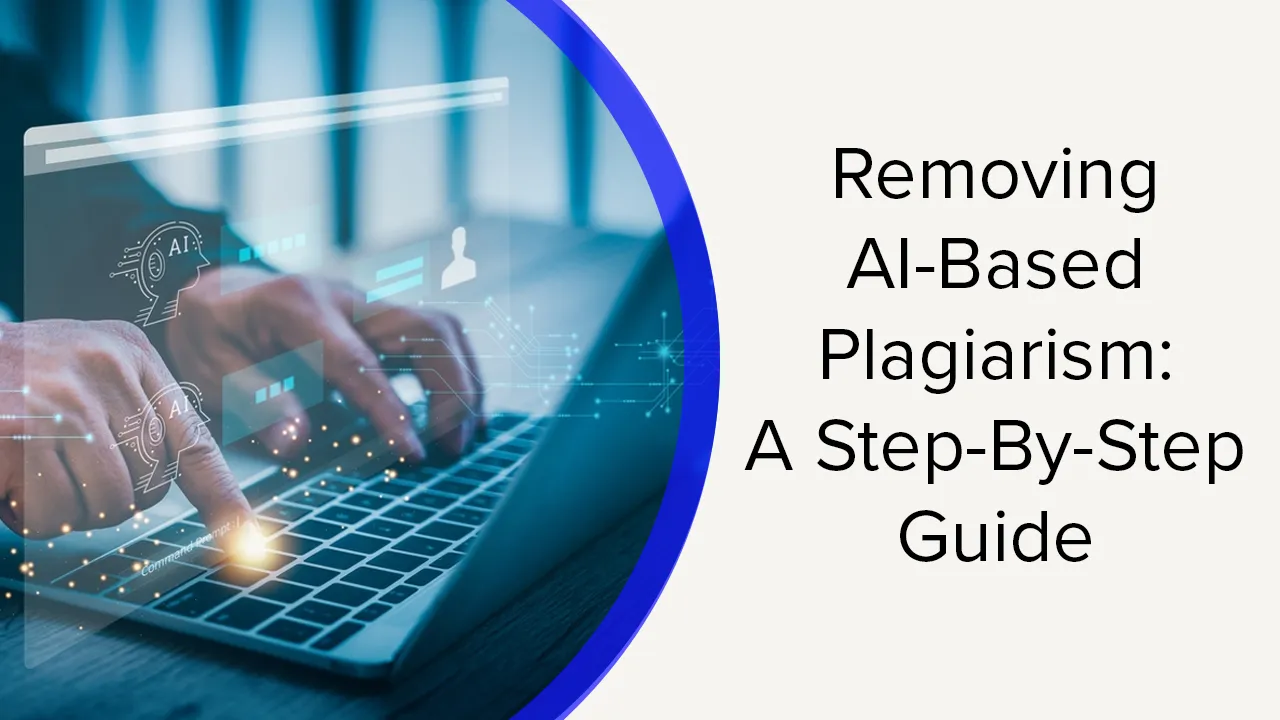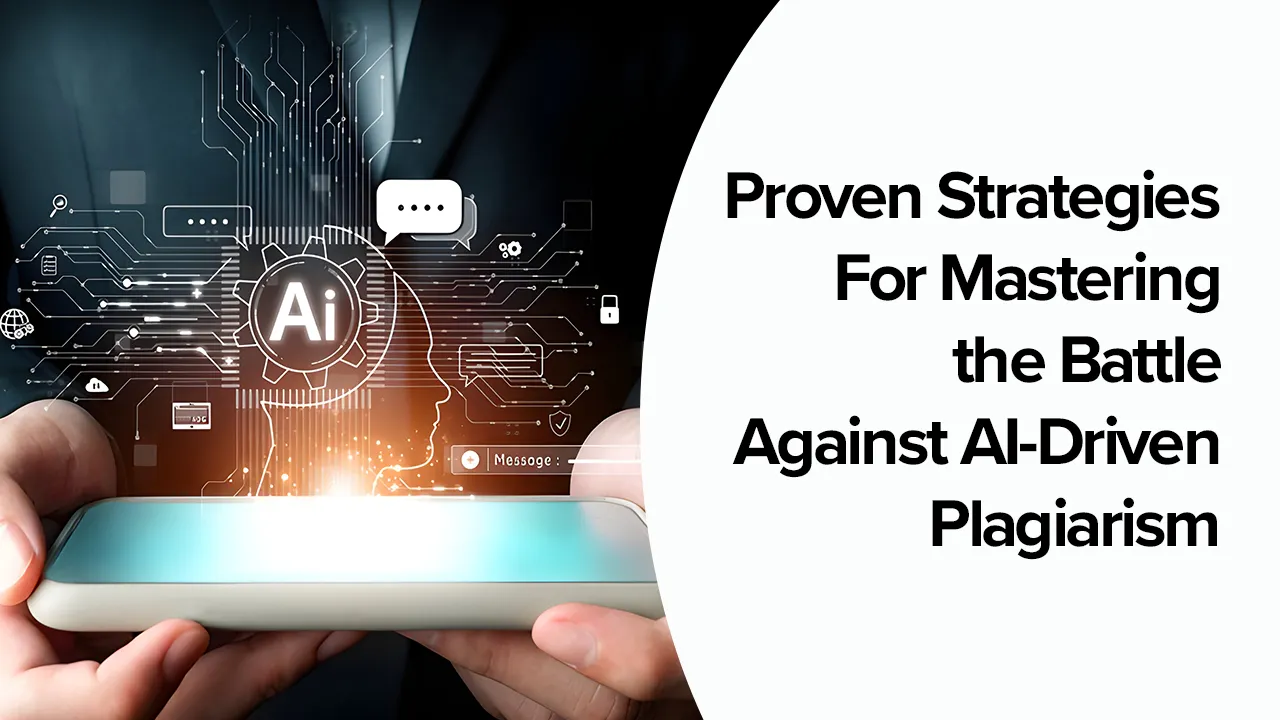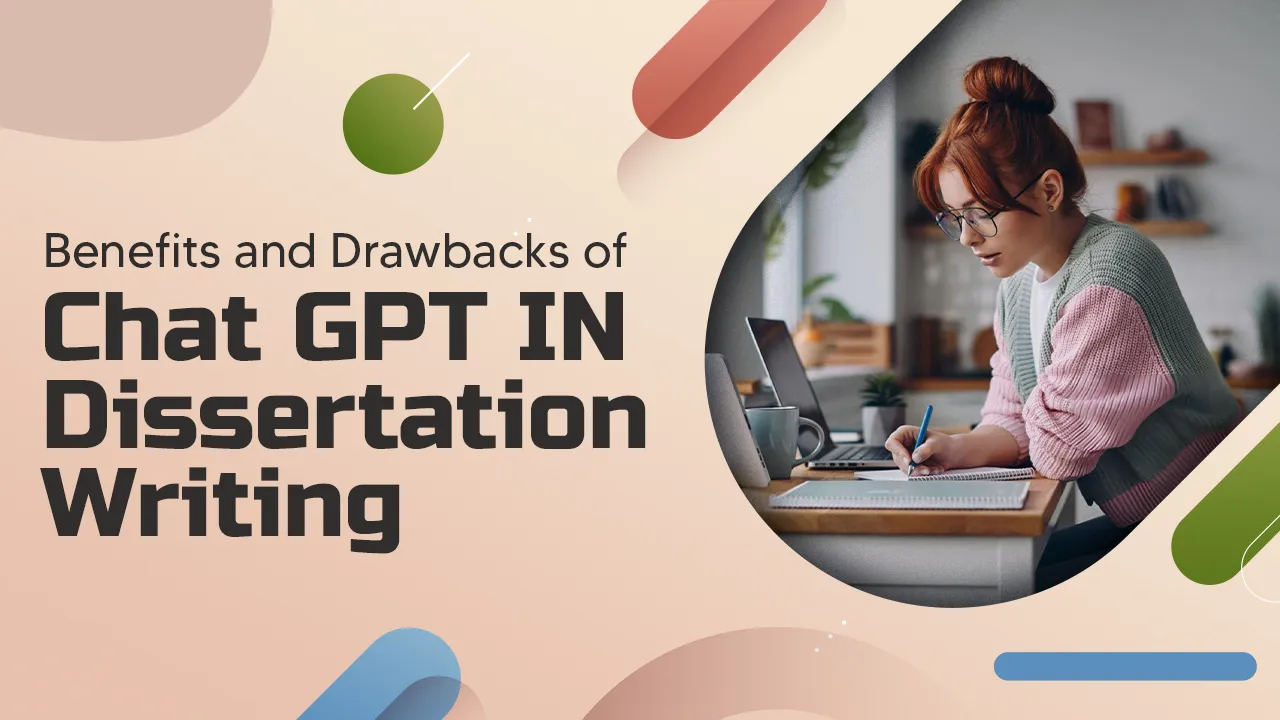Effective Methods to Combat AI-Based Plagiarism

Contents
Introduction
In today's digital age, the rise of AI tools like ChatGPT has brought about countless advancements and conveniences in the writing field. Even students can use the tool for their writing purposes. But there has also been an upsurge in AI-based plagiarism, which presents a major obstacle for content writers, essay and dissertation writer, and original thinkers.
It can be challenging to differentiate between authentic and ChatGpt-generated content because AI algorithms can produce content that closely resembles the original work quickly. You can use several powerful ideas and methods to deal with this issue and safeguard your assignments, essays, and writings.
This essay will give a thorough, step-by-step tutorial on successfully eradicating AI tool-based plagiarism. You can guarantee the accuracy of your content and prevent others from misusing it by using these tactics.
Top Strategies to Fight AI-Driven Plagiarism
AI tool (ChatGPT)-based plagiarism is the unauthorised use or copying of content generated by artificial intelligence algorithms. These algorithms can generate text, articles, essays and even entire books that mimic the style and structure of human-generated content. This tool-generated plagiarism seriously threatens original content creators, as it can reduce the value and uniqueness of their work.

1. Identify AI Tools-Generated Content
To combat ChatGPT-based plagiarism, it is important to identify AI-generated content accurately. Some clear signs of AI dissertation writing include unusual sentence structure, tone and style inconsistencies, and redundant or factually incorrect information. Familiarising yourself with these indicators can help you differentiate between real and AI-generated dissertation or research paper.
2. Use Plagiarism Detection Tools
AI-based plagiarism must be identified and countered; plagiarism detection systems are crucial. These tools use advanced algorithms to compare your dissertation with existing sources on the Internet, looking for similarities or matches.
Using reputable plagiarism detection software, you can quickly identify instances of AI-based plagiarism and take appropriate action. Then AI, you should take help from dissertation help services which provide you with all academic paper writing.

3. Take Legal Action
In cases where AI-based plagiarism is severe or persistent, legal action may be necessary. Consult an intellectual property attorney specialising in copyright infringement to explore your legal options. Legal remedies can help protect your rights as a content creator and prevent others from engaging in AI-based plagiarism.
4. Educate AI Users
One of the key steps in combating AI-based plagiarism is educating students, researchers, and AI users about the ethical use of AI-generated content. By raising awareness of the consequences of AI-based plagiarism and promoting responsible AI use, we can foster a culture of integrity and originality in the digital sphere.
5. Enhance Copyright Protection
Protecting your dissertation against AI-based plagiarism requires that it be properly written and constructed. To establish legal ownership, register your work with the appropriate copyright authorities. To enforce your rights and discourage potential plagiarism, you should also consider placing copyright notices and disclaimers on your writing or publications.
6. Develop Original and Useful Content
Creating excellent, original content is a powerful deterrent to ChatGPT-based plagiarism. You build your reputation as a dissertation writer by consistently delivering informative information, unique concepts, and engaging storytelling. Since AI algorithms have difficulty simulating originality and competence, it is more difficult for others to copy your work.
7. Work with Reliable Sources
Working with reliable sources will help your content appear more credible. Give credit where credit is due when using or referencing outside sources of information. If you use a variety of approaches and cite reliable sources, your work will be more authentic and original and less likely to be plagiarised by AI tools.
8. Monitor and Regular Inspection
Important ways to combat AI-based plagiarism include regularly checking and monitoring your work across different sites. Set up alerts and notifications to monitor instances where your content may be misused. Investigate suspicious incidents immediately, then take the necessary steps to protect your intellectual property.
9. Put Attribution Practices in Place
A proper attribution process must be in place for your dissertation writing content in order to guarantee its security and transparency. Identify the sources you have used, give acknowledgment to the original authors. You can discourage ChatGPT-based plagiarism by upholding proper attribution practices, which foster an environment of honesty and respect for original work.
10. Intellectual Property Protection
To safeguard your own work of dissertation, think about utilising digital rights management (DRM) techniques and procedures.These technologies can help prevent the unauthorised use and distribution of your content. DRM solutions provide additional protection against AI tools such as ChatGPT-based plagiarism, with features ranging from encryption and access control to licensing and usage limits.

11. Use Watermarking Methods
Adding a watermark to your content is another strong defence against ChatGPT based plagiarism. A visible or invisible watermark provides a unique identifier showing ownership of your text, photograph or video. Watermarks can help establish the uniqueness of your content and act as a deterrent to potential plagiarism.
12. Promote the Use of Ethical AI
Encouraging ethical AI use is essential to preventing plagiarism due to AI. Encourage ethical considerations and respect for intellectual property rights to be the highest priority by AI technology developers and users. We can reduce the harmful effects of AI-based plagiarism by fostering shared knowledge of and dedication to ethical AI practices.
Frequently Ask Questions (FAQ's)
1. How to Combat Plagiarism with AI?
Combating plagiarism with AI includes implementing citation practices with the help of plagiarism detection tools. It is a way to foster a culture of academic integrity. Educating students related to the ethical usage of content generated through AI is very essential and it can be done by making them know all the guidelines of citation.
2. How to Remove AI Plagiarism?
Removing AI-generated plagiarism involves rephrasing the content to make sure that it is original. The use of plagiarism detection software is very helpful in identifying any instances of AI-generated text. Rewriting the content in your own words is a very good way of removing AI. educating writers about the ethical use of AI tools helps prevent occurrences.
3. How to Reduce AI Plagiarism in Turnitin?
To reduce AI-generated plagiarism in Turnitin several practices need to be taken into account. educators can use measures like educating students about AI tools and their ethical usage. Provide them with clear guidelines related to citation and foster a culture of academic integrity which is very important.
4. What are the Strategies to Combat Plagiarism?
To combat plagiarism there are many strategies used by the writers. It is very essential to educate students about doing the proper citation. They have also been using plagiarism detection software to check the level of originality. Focus on the ways and practices used for ethical writing.
5. How to Write with AI Without Plagiarism?
To write with AI without plagiarism make sure that you use it as a tool. It is always said that we should not rely on AI-generated content. ensure originality by rephrasing information in your own words.
Conclusion
As AI models like ChatGPT continue to advance, the challenge of combating plagiarism becomes increasingly important. ChatGPT-based plagiarism is a serious challenge in the digital age, but by following the instructions in this article, you can successfully address this problem.
By using plagiarism detection technologies, training AI users, enhancing copyright protection, and creating original and valuable content for dissertation or thesis writing, you can protect your intellectual property and maintain the integrity of your work. It is crucial to foster a culture of academic integrity and encourage the creation of original and authentic content to maintain trust and credibility in the digital landscape.
Your email address will not be published. Required fields are marked *
Recent Post

15 Oct 2025
Best Dissertation Writing Services in the UK
12 Aug 2023
Is ChatGPT the Future of Dissertation Writing?
20% OFF!

Fascinating topic! AI-based plagiarism is a growing concern, and it's great to see strategies to combat it! Implementing effective methods is crucial to maintaining academic integrity and ensuring originality in research and writing.
Nice Post. This blog provides valuable insights into tackling AI-based plagiarism. Educational institutions and content creators need to stay ahead of the game and adopt proactive measures against this evolving challenge.
As technology advances, so do the challenges of plagiarism. Thank you for emphasizing the significance of adapting to combat AI-based plagiarism. Education and awareness are paramount!
Really enjoyed this! Facing AI-driven plagiarism requires a multi-faceted approach, and this blog outlines effective methods to do just that. It's a reminder that staying informed and proactive is key to upholding the quality and authenticity of academic work.
Excellent advice! As AI evolves, so do plagiarism risks. These methods are a step in the right direction for keeping academic work authentic.